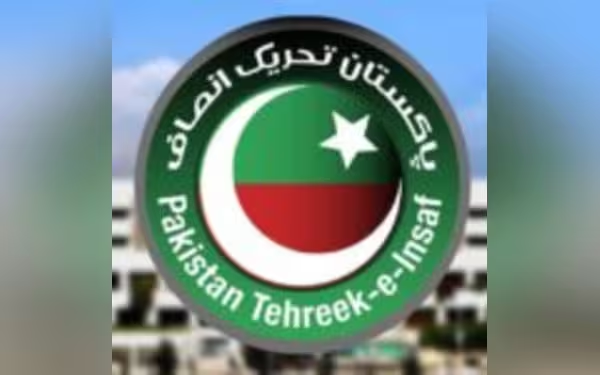Saturday, November 16, 2024 05:47 PM
PTI Loses National Assembly Seats as MNAs Declared SIC Members
- PTI MNAs reclassified as members of Sunni Ittehad Council.
- Supreme Court ruling complicates political landscape for PML-N.
- ECP's indecision adds complexity to ongoing political tensions.
 Image Credits: pakistantoday
Image Credits: pakistantodayThe National Assembly declares PTI MNAs as SIC members, complicating the political landscape amid Supreme Court rulings.
In a significant development within Pakistan's political landscape, the National Assembly Secretariat has officially declared the Pakistan Tehreek-e-Insaf (PTI) party as having lost its seats in the National Assembly. This decision, based on the Election Amendment Act, categorizes 80 PTI Members of the National Assembly (MNAs) as members of the Sunni Ittehad Council (SIC). The notification from the National Assembly Secretariat states, "All 80 members of the PTI are members of the Sunni Ittehad Council (SIC)." This announcement follows a Supreme Court ruling that had previously recognized 39 parliamentarians as PTI members and 41 as SIC members.
The situation escalated when the National Assembly Speaker, Sardar Ayaz Sadiq, sent a letter to the Election Commission of Pakistan (ECP) referencing the Election Amendment Act. However, the assembly secretariat acted swiftly, issuing a new party position without waiting for the ECP's response. This hasty action has raised questions about the procedural integrity of the decision-making process.
In July, the Supreme Court had ruled that the PTI was eligible for reserved seats for women and minorities in both national and provincial assemblies. This ruling was seen as a setback for the Pakistan Muslim League-Nawaz (PML-N) led coalition government, which has been struggling to maintain a majority in the assembly. The court's decision further complicated the government's efforts to pass a controversial Constitutional Package related to the judiciary.
According to the Supreme Court's clarification, out of the 80 MNAs, 41 will remain members of the PTI and thus part of the PTI's parliamentary party in both assemblies. The ECP had already recognized 39 of these lawmakers as PTI MNAs but was still deliberating on the status of the remaining 41. The list released by the National Assembly Secretariat on September 18 reflects the "actual party position" following the Supreme Court's July 12 verdict.
The National Assembly currently has a total of 336 seats, with 313 occupied and 23 remaining vacant or disputed. The disputed seats were initially allocated to the PML-N, PPP, and Jamiat Ulema-i-Islam-Fazl (JUI-F) after the ECP ruled that the SIC was not entitled to claim reserved seats. The current party positions are as follows: PML-N holds 110 seats, PPP has 69, Muttahida Qaumi Movement-Pakistan (MQM-P) has 22, JUI-F has 8, Pakistan Muslim League-Quaid (PML-Q) has 5, and Istehkam-i-Pakistan Party has 4 seats.
As the political drama unfolds, the implications of these decisions are profound. The National Assembly Speaker's insistence that the judgment on reserved seats "cannot be implemented under the Amended Election Act, 2017" highlights the ongoing tension between the judiciary and the legislative framework. The ECP's indecision regarding the implementation of the Supreme Court's verdict adds another layer of complexity to an already tumultuous political environment.
The recent developments surrounding the PTI and its MNAs underscore the intricate and often contentious nature of Pakistan's political system. As parties navigate the legal and procedural challenges ahead, the outcome will undoubtedly shape the future of governance in the country. The situation remains fluid, and it will be crucial for all stakeholders to engage in constructive dialogue to ensure stability and uphold democratic principles.













